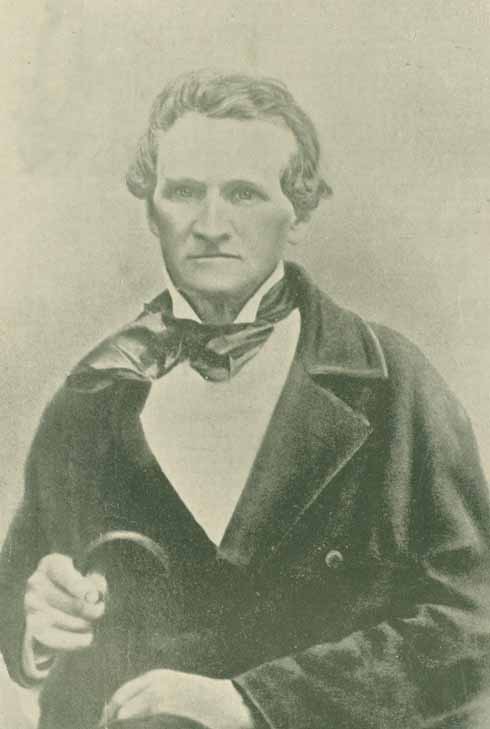
Browne, Thomas C.
b. 1794, in Kentucky; d. 1858, in San Francisco, California. Browne studied law and was admitted to the bar in Kentucky. He
moved to Shawneetown, Illinois Territory in 1812 and practiced law.
Voters in Gallatin County elected Browne to the House of Representatives in the Second and Third territorial legislatures.
In
1815, Territorial Governor Ninian Edwards appointed Browne as prosecuting attorney. After Illinois became a state in 1818,
the
state legislature appointed Browne as one of the Illinois Supreme Court's four justices. In 1841, the legislature divided
Illinois
into nine circuits, and each of the supreme court justices held court in one of the districts. Browne was responsible for
the
Sixth Judicial Circuit. In 1843, four members of the bar from Galena, Illinois, petitioned the Illinois House of Representatives
for the removal of Browne on the basis of general incompetence. Abraham Lincoln, as attorney for Browne, successfully argued
to
have the charges dropped. Browne was acquitted by a nearly unanimous vote. Browne held his seat on the bench until 1848, when
a
new state constitution reduced the number of justices from nine to three. During his tenure on the supreme court, Browne was
a
justice in 106 cases in which Lincoln was an attorney. In 1853, Browne moved to San Francisco, California.
U.S. Census Office, Fourth Census of the United States (1820), Gallatin County, IL, 46; Frederick B. Crossley, Courts
and Lawyers of Illinois (Chicago: American Historical Society, 1916), 1:184-85; John J. Duff, A. Lincoln:
Prairie Lawyer (New York: Bramhall House, 1960), 87-90, 174; John Palmer, ed., The Bench and Bar of Illinois:
Historical and Reminiscent (Chicago: Lewis Publishing Co., 1899), 1:14-15, 2:855; John M. Scott, Supreme
Court of Illinois 1818: Its First Judges and Lawyers (Bloomington, Illinois, 1896), 75-99; Newton Bateman, Paul
Selby, and William Spensley, eds., Historical Encyclopedia of Illinois and History of Jo Daviess County, 2 vols.
(Chicago: Munsell Publishing, 1904), 1:63. Illustration courtesy of the Abraham Lincoln Presidential Library,
Springfield, IL.